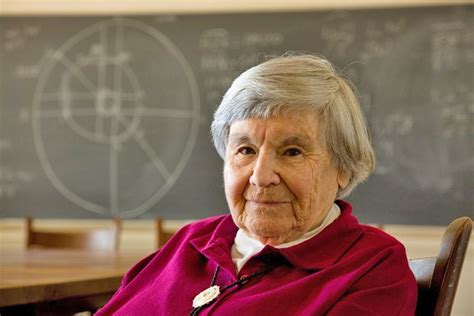A Quote by Samuel Johnson
He that overvalues himself will undervalue others, and he that undervalues others will oppress them.
Related Quotes
When therefore we are hindered, or disturbed, or grieved, let us never attribute it to others, but to ourselves; that is, to our own principles. An uninstructed person will lay the fault of his own bad condition upon others. Someone just starting instruction will lay the fault on himself. Some who is perfectly instructed will place blame neither on others nor on himself.
A good man will never harm or oppress another. A good man will share his last morsel of food with others in need, and die of hunger when he no longer has any food -- instead of cheat or steal from others to survive. Selflessness. Humility. Truthfulness. These are the three marks of an honorable man.
Judging others will avail you nothing and injure you spiritually. Only if you can inspire others to judge themselves will anything worthwhile have been accomplished. When you approach others in judgment they will be on the defensive. When you are able to approach them in a kindly, loving manner without judgment they will tend to judge themselves and be transformed.
You will be educated, which means that you will be interested where others are bored, that you will notice unities where others experience randomness, and that you will intend meanings where others are just spouting words. For exactly that is supposed to be the result of becoming literate: The world becomes a thick texture of significance that you know how to “access.
When it seems that God shows us the faults of others, keep on the safer side-it may be that your judgment is false. On your lips let silence abide. And any vice that you may ascribe to others, ascribe at once to them and yourself, in true humility. If that vice really exists in a person, he will correct himself better, seeing himself so gently understood, and will say of his own accord the thing that you would have said to him.
A man that hath no virtue in himself, ever envieth virtue in others. For men's minds, will either feed upon their own good, or upon others' evil; and who wanteth the one, will prey upon the other; and whoso is out of hope, to attain to another's virtue, will seek to come at even hand, by depressing another's fortune.
Children that have been petted and waited upon, always expect it; and if their expectations are not met, they are disappointed and discouraged. This same disposition will be seen through their whole lives, and they will be helpless, leaning upon others for aid, expecting others to favor them and yield to them.
Someone who does not draw strength from himself and who is incapable of finding the meaning of his life within himself will...seek the map to his own orientation somewhere outside himself-in some ideology, organization, or society, and then, however active he may appear to be, he is merely waiting, depending. He waits to see what others will do, or what roles they will assign to him, and he depends on them-and if they don't do anything or if they botch things, he succumbs to disillusion, despair, and ultimately, resignation.
An impractical man--which he not only seems to be, but really is--will always be unreliable and unpredictable in his dealings with others. He will engage in actions that mean something else to him than to others, but he is at peace with himself about everything as long as he can make it all come together in a fine idea.





































